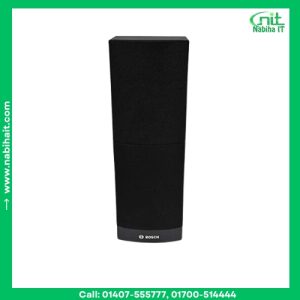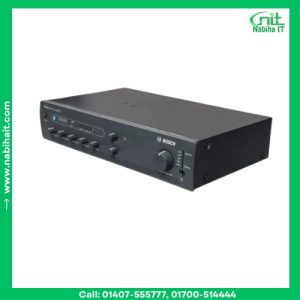Bosch LBD3903-D, 12W, Cabinet Loudspeaker, Black
Bosch LBD3903-D Cabinet Loudspeaker
- Bosch LBD3903-D Cabinet speaker
- 12 W Sound
- High quality sound delivery
- 18 Watt R.M.S.
- Easy Wall mounting
- 1 Year Warranty.
৳ 9,500.00Bosch LBD3903-L, 12W, Cabinet Loudspeaker, White
Bosch LBD3903-L Cabinet Loudspeaker
- Bosch LBD3903-L Cabinet speaker
- 12 W Sound
- High quality sound delivery
- 18 Watt R.M.S.
- Easy Wall mounting
- 1 Year Warranty.
৳ 9,500.00Bosch LBD3905-D, 12W, BI Directional Cabinet Loudspeaker, Black
Bosch LBD3905-D BI-Directional Cabinet Loudspeaker
- Frequency : 200-15000 Hz
- Opening Angle : 210°/60°
- Sound Pressure Level : 96 dB/90 dB
- Cabinet Type : Bi-Directional
- Type of Product : Cabinet Loudspeaker
- Max. Power : 18 W
- Rated Power : 12 W
Call for PriceBosch LB2-UC15-D1 15-Watts Premium Sound Black Cabinet Loudspeaker
Bosch LB2-UC15-D1 BI-Directional Cabinet Loudspeaker
- 15 watt Premium sound speaker
- High-fidelity music and speech reproduction
- Compact yet robust ABS enclosure
- Supplied with adjustable mounting bracket
- Water and dust protected IP65
৳ 15,500.00Bosch LB2-UC30-D1, 30W, Premium Sound Cabinet Loudspeaker, Black
Bosch LB2-UC30-D1 Premium Sound Cabinet Loudspeaker
- High-fidelity music and speech reproduction
- Selectable 8 ohm, 70 V and 100 V inputs
- Compact yet robust ABS enclosure
- Supplied with adjustable mounting bracket
- Complies with international installation and safety regulations
৳ 18,500.00Bosch LBD3921-D, 24W, Column Loudspeaker, Black
Bosch LBD3921-D Column Loudspeaker -Black
- Bosch LBD3921-D Column Loudspeaker
- 24 watt
- Color black
- Push terminals to allow selection of power
- Quick and simple Installation with mounting brackets
- Excellent frequency response
- High sound pressure level
- Wide opening angle
৳ 12,500.00Bosch LBD3921-D, 24W, Column Loudspeaker, Black
৳ 12,500.00Bosch LA2-UM30-D-IN, 30W, Column Loudspeaker, Black
- Good speech intelligibility and background music reproduction
- For applications where directivity is important
- Slim-line weatherproof design
- Swivel wall mounting bracket supplied as standard
৳ 21,500.00Bosch LH1-CC30-IN, 30W, Horn Abs Circular Horn Loudspeaker, Light Gray
Bosch LH1-CC30-IN, 30W, Horn Abs Circular Horn Loudspeaker
- Excellent speech reproduction
- Water – and dust protected to IP 65
- Easy to install
- Simple power tapping through color code
৳ 10,500.00Bosch PLE-1MP30-IN, 30W, Mixer Amplifier Portable, Traffic Black
- Bosch PLE-1MP30-IN Mixer Amplifier Portable, 30W, Traffic Black
- Bluetooth, USB, FM and TF card slot for audio streaming
- Variable ducking option
- Supports 12/24V battery power supply
- Low battery indication
- Phantom power supply support
৳ 40,000.00Bosch PLE-1ME060-3IN, 60W, Mixer Amplifier, Charcoal
Bosch PLE-1ME060-3IN Mixer Amplifier, 60W, USB/BT, Charcoal
- Inbuilt Bluetooth for audio streaming
- Supports audio playback from USB pen drive
- 4-mic/line inputs, plus BGM input
- Optional 2-tone chime generation for input-1
- Insert feature for use as a pre/power amplifier
৳ 55,000.00Bosch PLN-1AIO090-IN, 90W, All-In-One Amplifier, Charcoal
Bosch PLN-1AIO090-IN Plena 90W all-in-one Amplifier, Charcoal
- All in One solution for background music and paging
- MP3 player for USB device and SD card
- 4 Microphone inputs with independent level control
- USB drive and SD card for MP3 playback
- Built-in FM tuner with preset memories
- 100V/TeIephone input with priority and VOX
- 24 VDC backup power supply input
Call for PriceBosch PLN-1AIO090-IN, 90W, All-In-One Amplifier, Charcoal
Call for PriceBosch PLE-1ME240-3IN, 240W, Mixer Amplifier, Charcoal
Bosch PLE-1ME240-3IN Mixer Amplifier, 240W, USB/BT, Charcoal
- Inbuilt Bluetooth for audio streaming
- Supports audio playback from USB pen drive
- 4 microphone/line inputs, plus music source input
- Insert feature to use as a pre/power amplifier
- Optional 2‑tone chime generation for input 1
৳ 85,000.00
Epowsens
Established in 2005, Epowsens, a leading enterprise focuses on RF/AM soft label, RF/AM hard tag, RFID inlay/label, EAS/RFID system, etc. With over 10 years of experience, hundreds of employees and 1.2 billion pieces of annual production quantity, our products has cover a large share of the worldwide market. Our company’s amount of annual exports is 5-7 millions USD.
The core of our service is responsibility. We keep it as our culture, making our industry protects the retailers in the world.
EAS (Electronic Article Surveillance)–A security system for preventing theft in retail stores that uses disposable RF /AM label or reusable RF/AM hard tags attached to the merchandise. An alarm is triggered when walking through detection antenna gate at the store exit if a disposable tag was not deactivated or a reusable tag was not removed at the checkout counter.
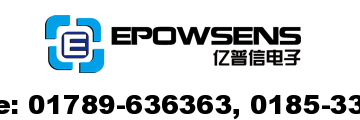
epowsens Bangladesh
UHF Inlay HF Inlay RFID UHF label RFID HF Label RFID Tag
RF Label Hard Tag Bottle Tag Ink Tag Detacher Am Label Deactivtor Eas System Safer Pin Lanyard Alarm Tag

EAS anti-theft alarm security system Price in Bangladesh
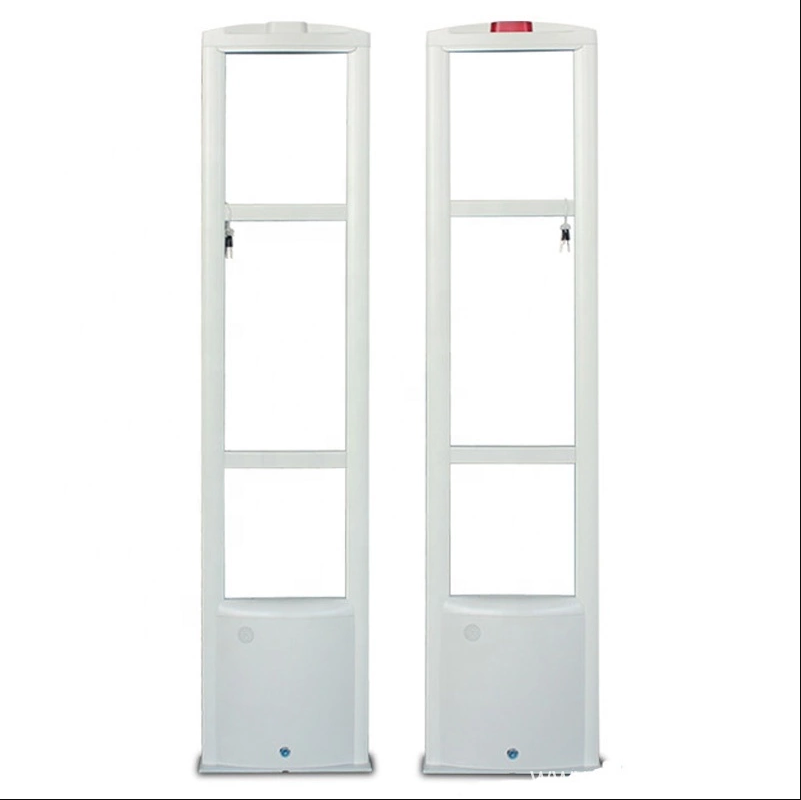
Epowsens Retail eas rf alarm antenna anti-theft security systems in Uttara, Dhaka-Bangladesh
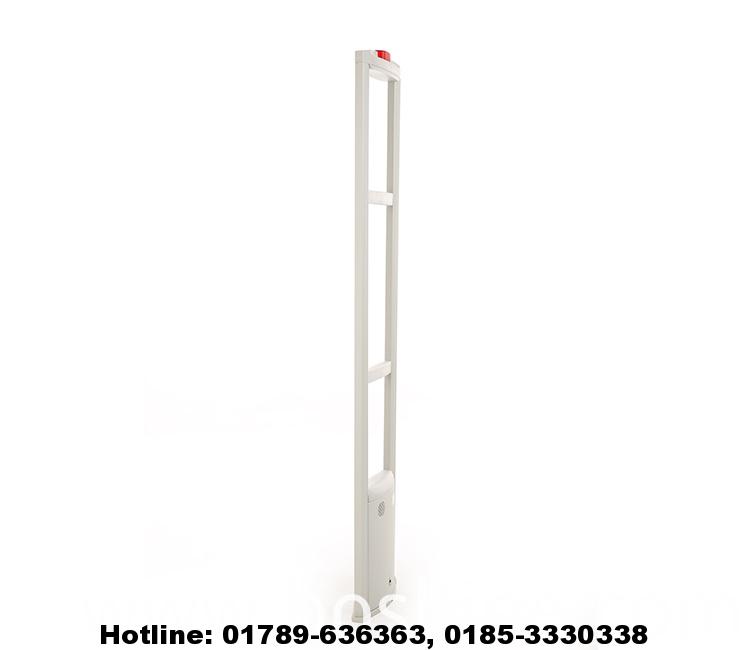
Retail eas rf alarm antenna anti-theft security systems in Uttara, Dhaka



How EAS Systems Working?
How Anti-shoplifting Devices Work? How EAS devices can detect security tags and security labels?
The most effective anti-shoplifting tools these days are tag-and-alarm systems, better known as electronic article surveillance (EAS) systems. Separately, these are good options. Used together, experts say, they’re almost unbeatable. EAS is a technology used to identify articles as they pass through a gated area in a store. This identification is used to alert someone that unauthorized removal of items is being attempted. According to the Association of Automated Identification Manufacturers, over 800,000 EAS systems have been installed worldwide, primarily in the retail arena. EAS systems are useful anywhere there is an opportunity for theft of items of any size. Using an EAS system enables the retailer to display popular items on the floor, where they can be seen, rather than putting them in locked cases or behind the counter.
New EAS technologies are being produced — not only to reduce shoplifting — but also to help increase sales, lower labor costs, speed inventory, improve stockroom logistics and, one day, to replace inventory record-keeping. But for now, we’ll stick to the role of EAS in battling shoplifting in your imaginary store!
Three types of EAS systems dominate the retail industry. In each case, an EAS tag or label is attached to an item. The tag is then deactivated, or taken from an active state where it will alarm an EAS system to an inactive state where it will not flag the alarm. If the tag is a hard, reusable tag, a detacher is used to remove it when a customer purchases the item it’s attached to. If it’s a disposable, paper tag, it can be deactivated by swiping it over a pad or with a handheld scanner that “tells” the tag it’s been authorized to leave the store. If the item has not been deactivated or detached by the clerk, when it is carried through the gates, an alarm will sound.
The use of EAS systems does not completely eliminate shoplifting. However, experts say, theft can be reduced by 60 percent or more when a reliable system is used. Even when a shoplifter manages to leave the store with a tagged item, the tag still must be removed — something that is no longer as easy as it once was. For example, some EAS tags contain special ink capsules, which will damage the stolen item when forcibly, and illegally, removed. (This type of device is known in the industry as benefit denial — we’ll discuss it more later!). Other popular EAS components today include source tagging, whereby an inexpensive label is integrated into the product or its packaging by the manufacturer.
The type of EAS system dictates how wide the exit/entrance aisle may be, and the physics of a particular EAS tag and technology determines which frequency range is used to create a surveillance area. EAS systems range from very low frequencies through the radio frequency range (see How Radio Scanners Work). These EAS systems operate on different principles, are not compatible and have specific benefits and disadvantages. (That’s why the Consumer Products Manufacturers Association, Inc. is encouraging a “tower-centric” EAS approach that can “read” multiple tag technologies rather than the “tag-centric” models that exist today.

